Mario Vargas Llosa: The time the writer received the Nobel Prize for Literature and his opinion on this award 10 years later
[ad_1]
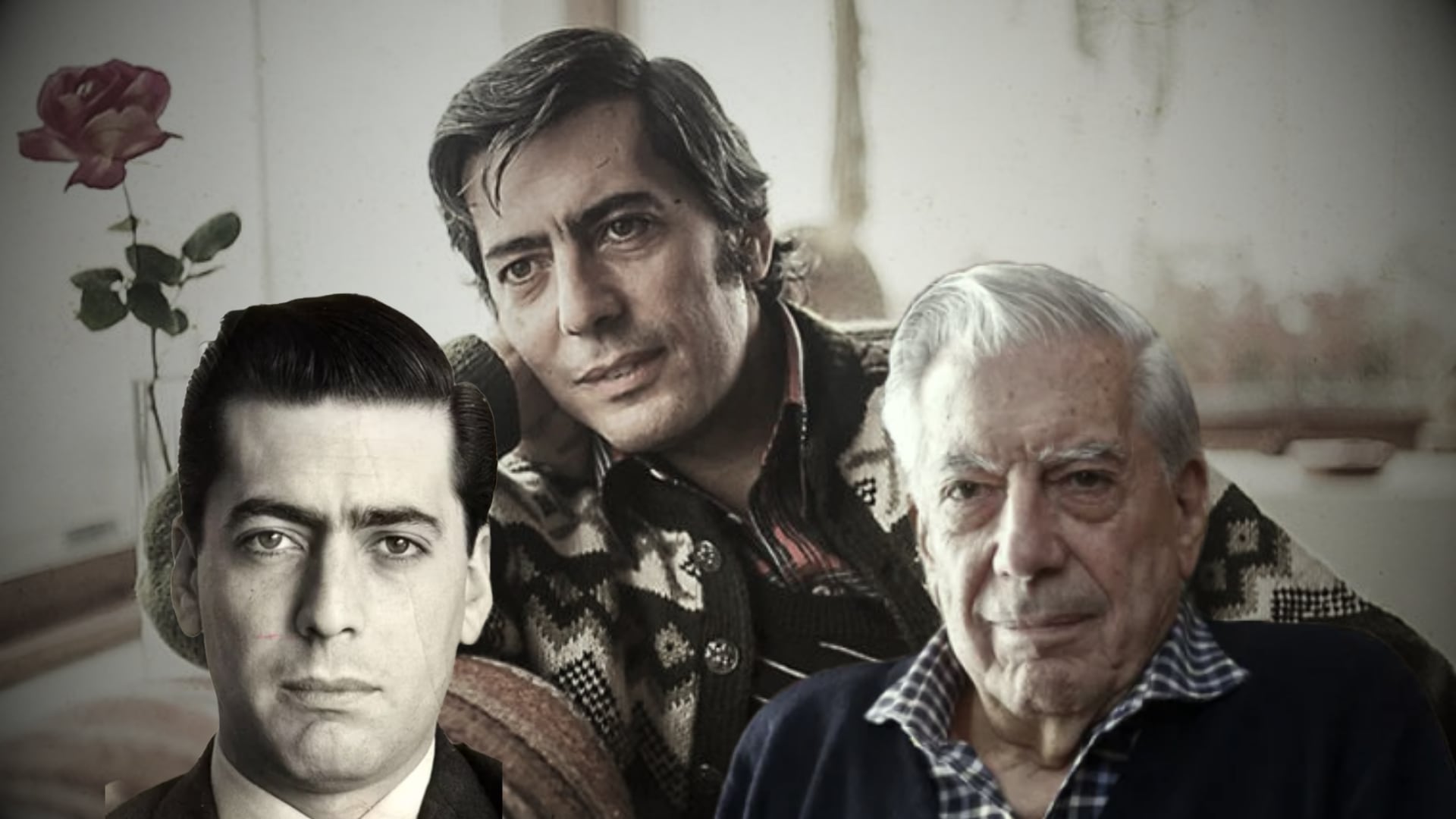
On the morning of Thursday, October 5, 2023, citizens from various latitudes met the winner of the 2023 Nobel Prize in Literature, an award that has been given for many years to a writer for his vast career and contribution to the world of letters. As the name of the new winner Jon Fosse spread, Norwegian author considered one of the most prominent contemporary playwrights in the world, a sector of the population remembered the time when Mario Vargas Llosa He obtained this award, which once again put Peru in the eyes of the world.
While Peruvians were having breakfast and preparing to go to their workplaces or studies on the morning of October 7, 2010, the media announced that the Nobel Prize in Literature It was awarded to Mario Vargas Llosa “for his cartography of the structures of power and his steely images of resistance, rebellion and the defeat of the individual.”
As the minutes passed, journalists from various media outlets in Peru tried to contact the writer, who was far from his homeland, but shared the emotions of his Peruvian compatriots. It is necessary to mention that that day the topic of conversation in schools and workplaces was the award that the author of “The city and the Dogs”.
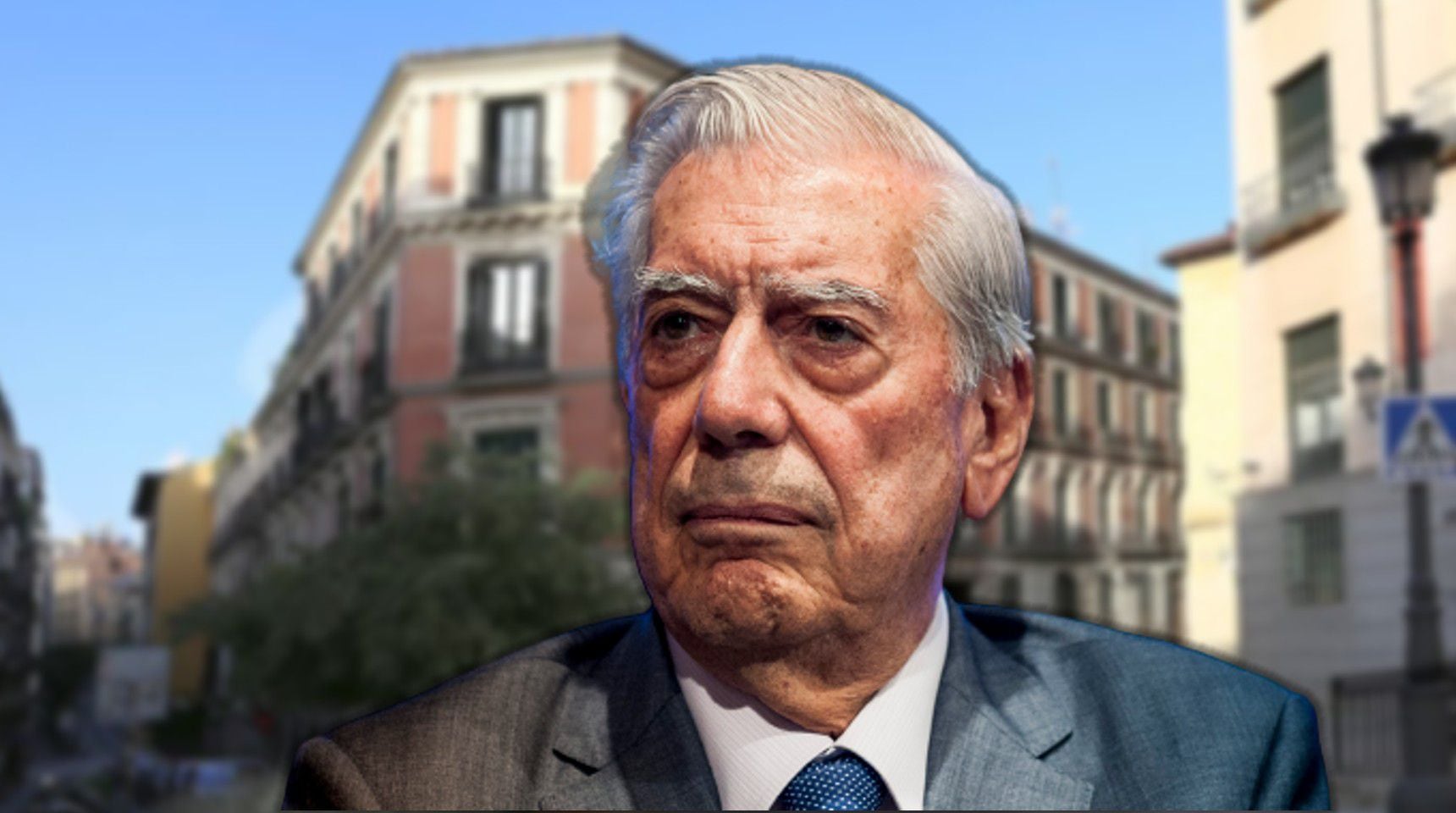
As the hours passed, more than one expected the novelist to make a statement. Hopes faded after well-informed citizens told their friends and family that on December 10, Vargas Llosa would attend the award ceremony in Stockholm. These well-informed people added that on that date Vargas Llosa would give a speech.
Meanwhile, followers of his life and work, as well as people who began to be interested in his books, learned of Vargas Llosa’s first statement through the press. “(…) Very moved and enthusiastic,” said Vargas Llosa from New York, the city where he was a visiting professor at Princeton University.
The president of the jury for the Nobel Prize in Literature, Peter Englund, told the media about what the writer was doing before receiving the good news. “He had gotten up at five in the morning to present a class, when he received our call at a quarter to seven, while he was working intensely,” he said.
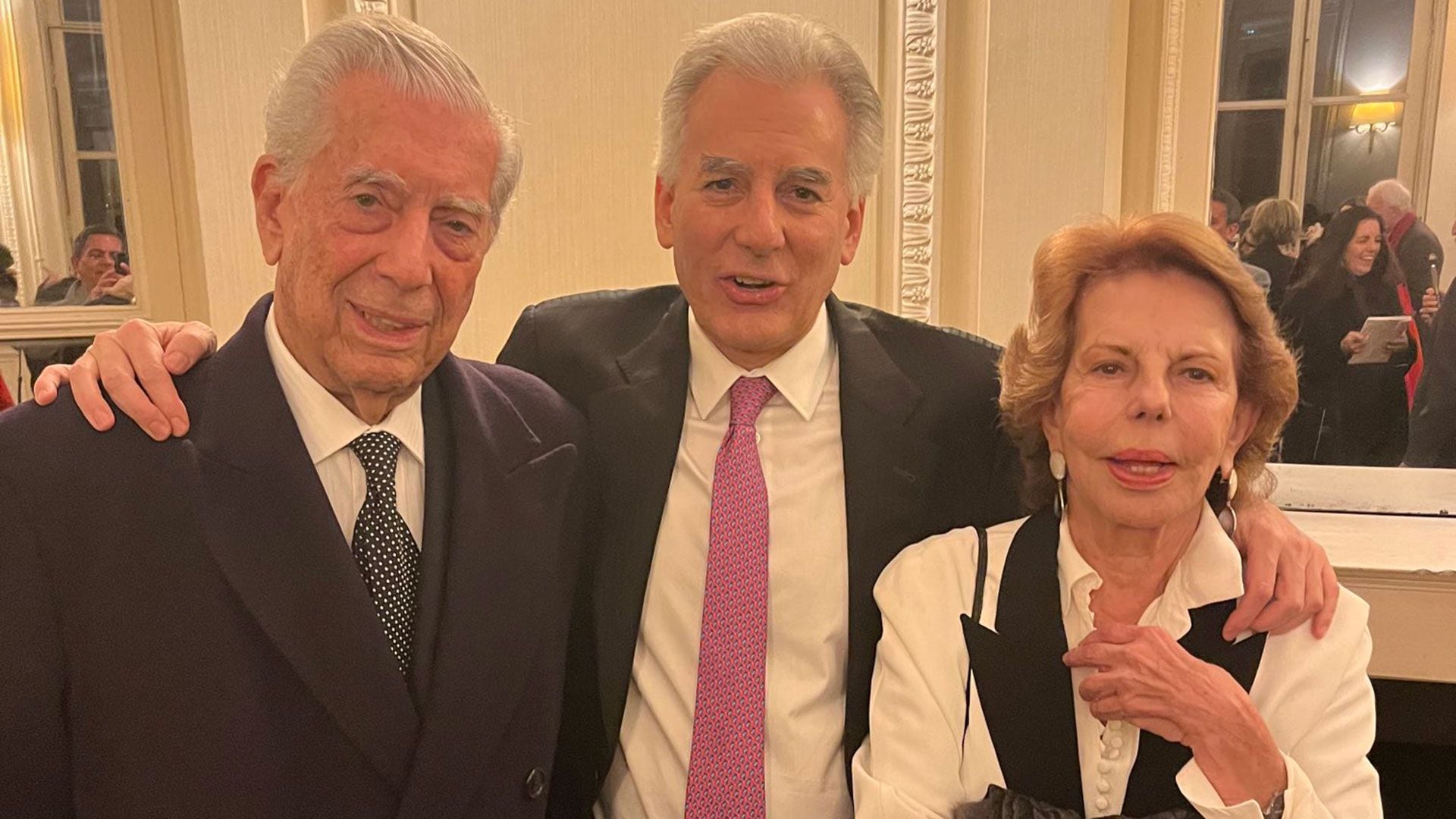
Alvaro Vargas Llosa He also told what happened when he received the call from his father. On the tenth anniversary of the awarding of the Nobel Prize in Literature to Mario Vargas Llosa, held on October 8, 2020 at the Cervantes Institute, the son of the Nobel Prize winner told the details of the day when his father told him that had won the prize. At first, he thought that the call announced a tragedy, but that was not the case.
“Alvarín, I’m calling to tell you that the permanent secretary of the Swedish Academy just called me to tell me that I have won the Nobel Prize,” Mario Vargas Llosa told his son, on the morning of October 7, 2010.
Ten years after hearing this message, Álvaro made known what he told his father. “And I have to confess with infinite shame that before congratulating him and despite the joy that overwhelmed me, the first thing I managed to say to him was: ‘You don’t know how much I thank you for having freed me forever from the damned question: why did I never ask him?’ They gave and why will they never give the Nobel Prize to Mario Vargas Llosa?’ “That’s how I found out about the Nobel Prize,” he said.
From October 7, 2010 to December 10, it was inevitable that people would talk about Mario Vargas Llosa, while people went to bookstores more frequently to purchase a copy of “The City and the Dogs”, “Conversation in the Cathedral”, “The Bosses” and other books that were in the minds of the Peruvians but that came to life from that morning.
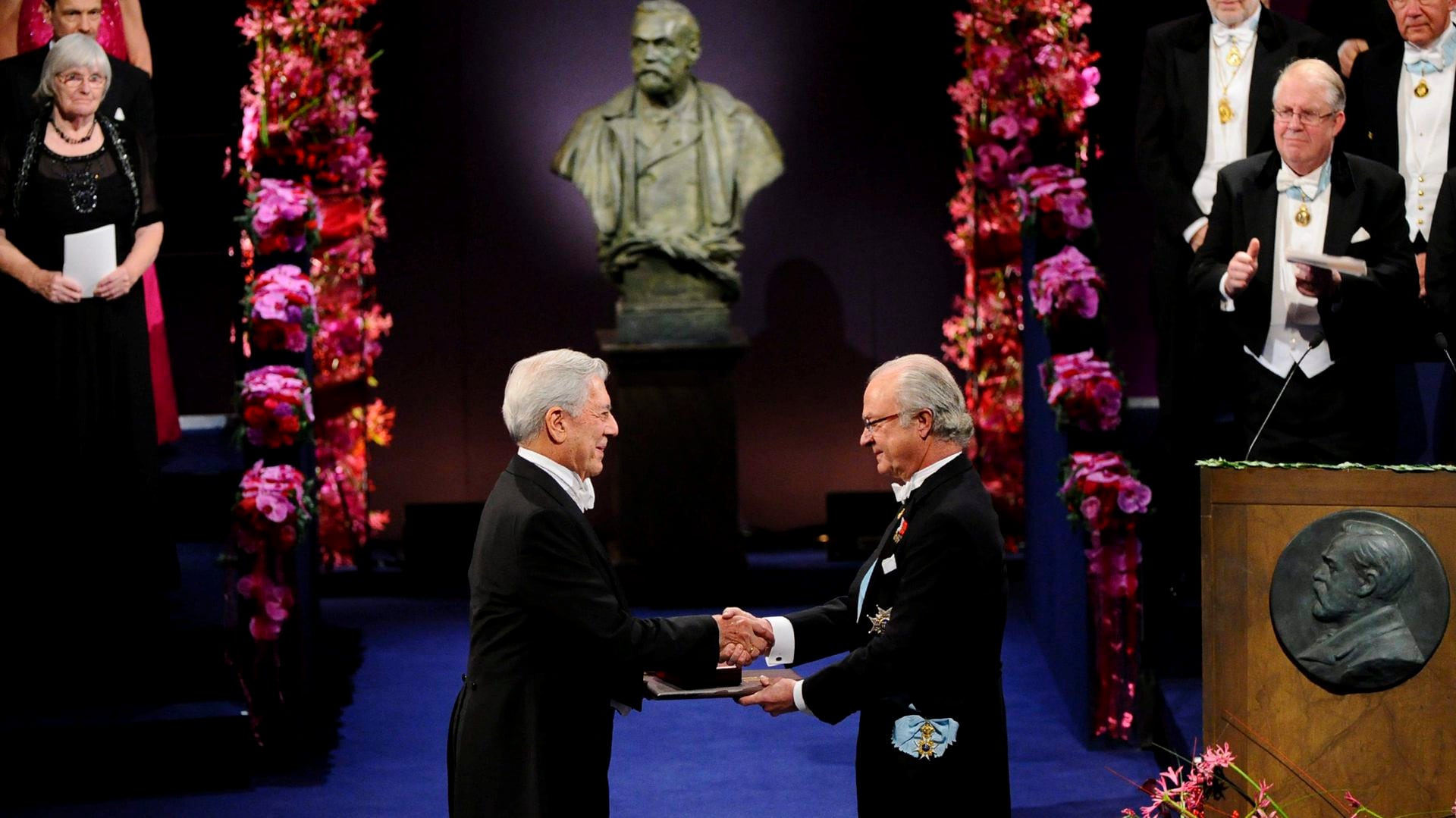
December arrived and Peruvians had expectations of what Vargas Llosa would say on December 10 after receiving the award that would immortalize him. The expectation increased as the media reported on it and interviewed writers and intellectuals who spoke about the literary works and the contribution to literature of the writer intensely praised at that time.
Below is a fragment of the speech:
“Peru is Patricia, the cousin with the snub nose and indomitable character whom I had the fortune to marry 45 years ago and who still endures the manias, neuroses and tantrums that help me write. Without her, my life would have dissolved a long time ago in a chaotic whirlwind and Álvaro, Gonzalo, Morgana and the six grandchildren who prolong and brighten her existence would not have been born. She does everything and does it well. She solves problems, manages the economy, brings order to chaos, keeps journalists and intruders at bay, defends my time, decides appointments and trips, packs and unpacks suitcases, and is so generous that, even when she thinks who scolds me, gives me the best of compliments: ‘Mario, the only thing you are good for is writing.‘” he said, visibly moved.
On the tenth anniversary of the awarding of the Nobel Prize in Literature to Mario Vargas Llosa, held on October 8, 2020 at the Cervantes InstituteMario Vargas Llosa maintained that he feels alive despite having received the Nobel Prize and highlighted his literary production after the award.
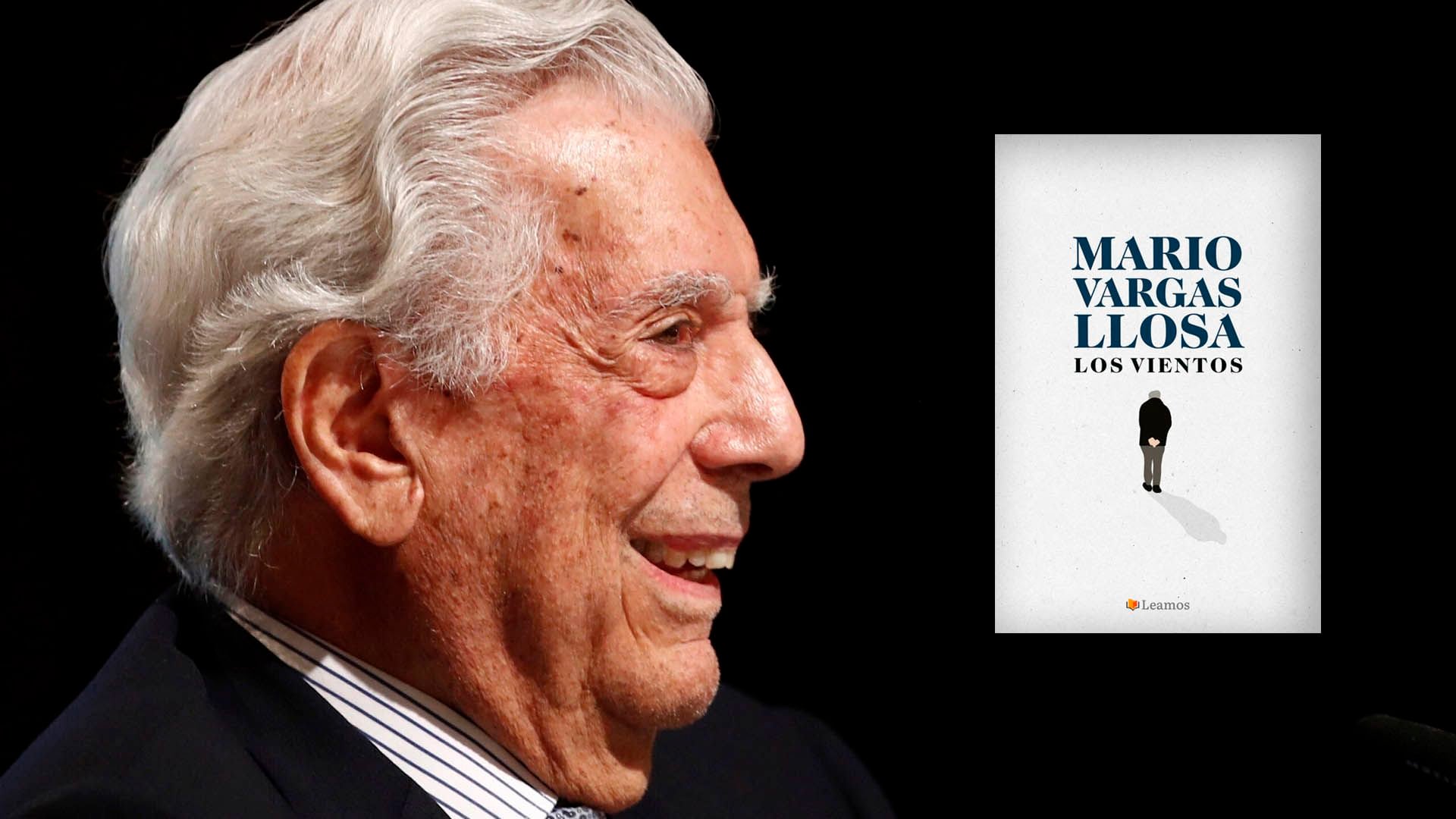
“One of the difficulties faced by those who receive the Nobel Prize in Literature It is to show that after that award he is alive. It is an award that tends to turn writers into statues, as if they had really finished their literary and life experience. Of course, the Nobel Prize involves commitments to universities and fairs, so for some months you are really busy,” he declared.
“But I think the general idea that exists is that if someone receives the Nobel Prize in Literature, in some way their literary career is over, and then, if you are still alive, you feel very demoralized and try to show that that is not truth, that there is a literary life after the Nobel Prize, that one can continue writing and publishing, that is, that one is still alive. Well, I think I have proven it, I hope I’m not wrong. It’s true, I have published quite a few books since and in general I feel alive, I don’t feel like a corpse after the Nobel Prize”he added.
At another point in his speech, Vargas Llosa said that the function of the writer is to criticize the established powers. “But it is enough for freedom to be restricted in a society for literature to immediately appear as a combat weapon. The literature“When censorship arises or when there is a power that cares about what is said, about the ideas that circulate through books, it immediately becomes charged with a certain virulence and becomes a kind of counterpower,” he stated.
Perhaps many decades will pass before joy once again overwhelms Peruvians on the morning of an October, a month in which people believe in miracles. The truth is that there is a before and after the Nobel Prize in Literature in the cultural aspect. The impact that a Peruvian writer winning this award had on children and adolescents is undeniable.
[ad_2]
